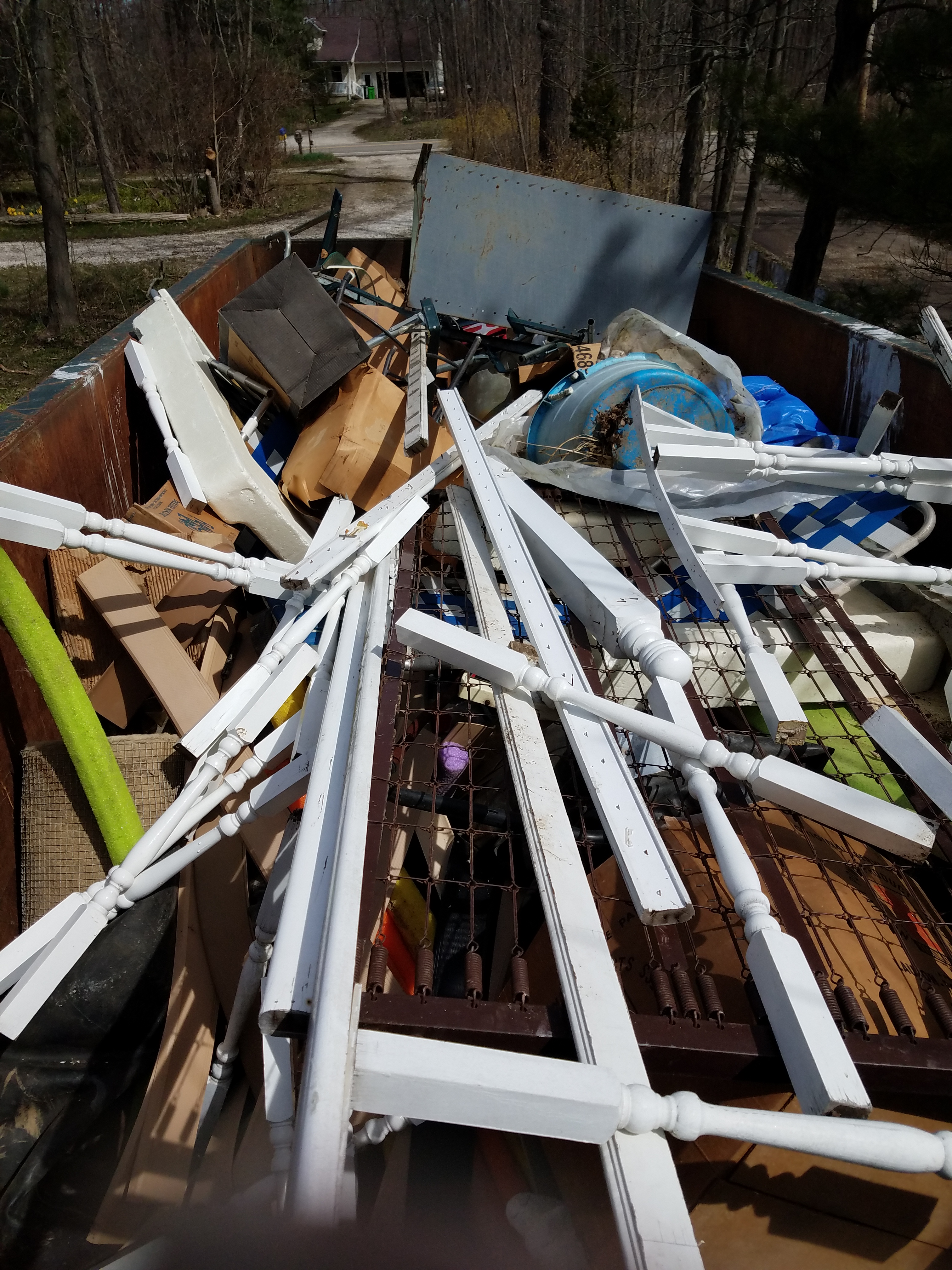It’s #EarthDay, and I’d like to remind you all that you have your very own mountain.

Today, we’re finishing filling the third (fourth?) dumpster since moving into my grandparents’ house two years ago. This one is mostly filled with stuff from the attic of their garage and the loft of the barn. This particular dumpster contains their pajamas from the 1960s, 20 or so sets of electric garden shears and every pillow they ever owned, to name just a few things.
My grandparents weren’t very good at throwing things away. Even though they left behind literal truckloads of trash for us to deal with after their death, I don’t think their level of consumption was particularly far from the norm. They just didn’t throw away. So the unfortunate part of the legacy they left behind is a mountain of trash.
Guess what: You have your own personal mountain of trash somewhere. Just because your garbage gets picked up and removed from your sight every week doesn’t mean it’s gone. The $5 t-shirts that fall apart after a month and the K-cups and the broken Dollar Spot toys we all joyfully consume Do. Not. Disappear. They accumulate and they take their toll on the environment both in production and in their long, long lives in landfills.
Cheap, disposable stuff is cheap because someone else has to bear the cost: in unsafe and unfair labor conditions, in cruel treatment to the other living beings, in natural resources tainted with waste. Our neighbors, our fellow human beings and our grandchildren foot the bill. (One dumpster alone costs about $700-$800, for starters, but of course the full cost of all this trash is far greater.)
I’m not immune to the allure of cheap, convenient stuff. I have two kids, and sometimes I just need a frozen pizza so we can eat dinner, and I don’t want to begrudge them the joy of a new toy here and there. The fact of my existence means I generate waste. But I have spent my children’s lives so far living among the choices my grandparents made to acquire and accumulate. And I have begun to weigh every purchase I make with the impact it will have. I walk around with my imaginary mountain, trying to slow its growth.
When I beg people not to bring gifts to my kid’s birthday party, it’s not because I hate fun, it’s because we have plenty, and excess will only contribute to their own mountains of trash.
This Earth Day, I hope you will join me in taking a serious look at your own consumption. We can plant all the trees and pick up all the litter and walk instead of drive as much as we want, but if we don’t start living as though the things we’re done with *don’t go away,* we’re sealing a grim fate for future generations.
If we as consumers start buying things that last, buying used, trying to repair more often, insisting on less packaging and, I think most importantly, just buying less, we can change the course of the future for our own grandchildren.
Your trash mountain may not exist in your garage, but it does exist. Starting today, let’s all start thinking about our personal trash mountains as we go through life and let it help guide our choices.
